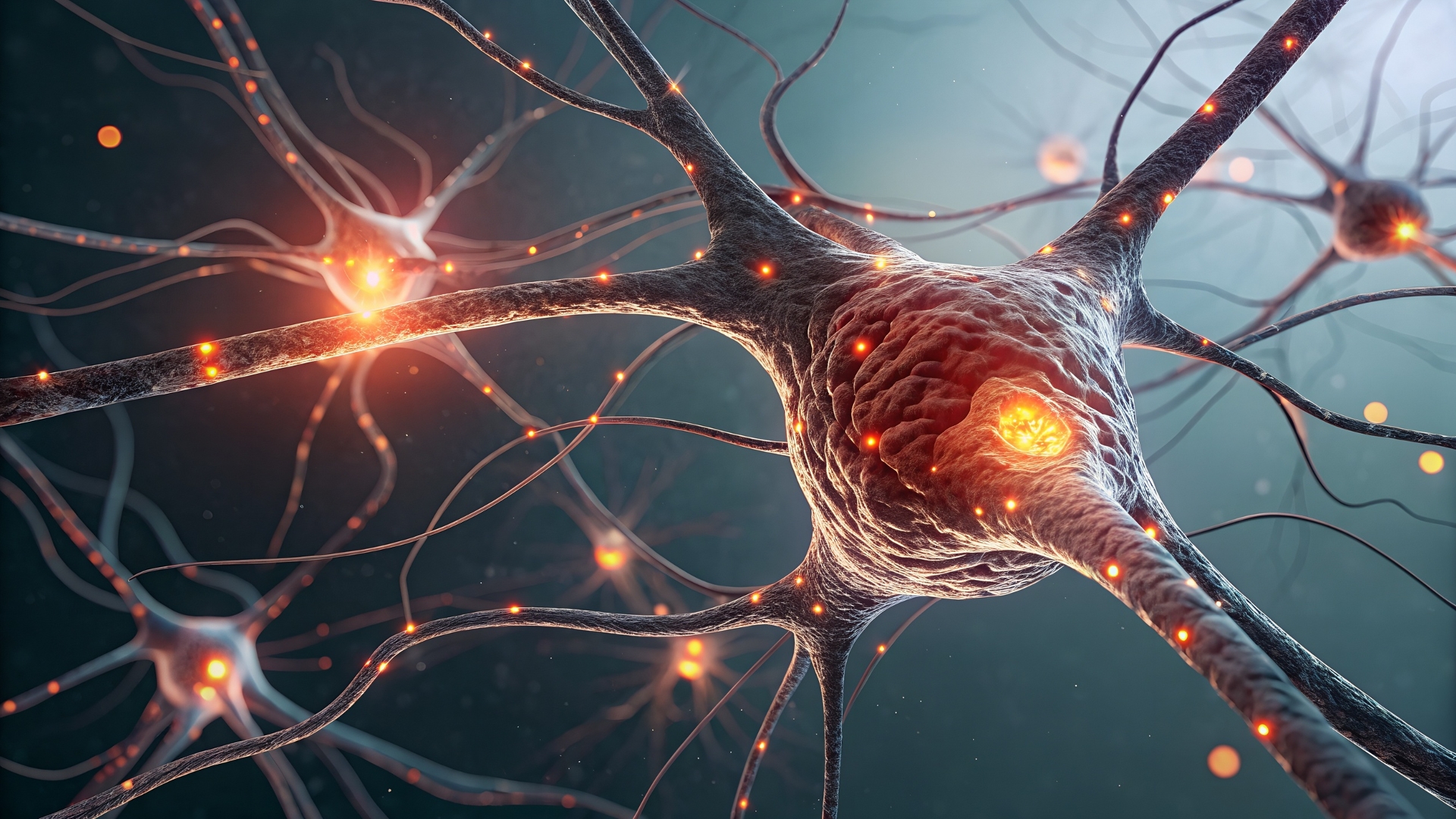
Understanding the Roots of Sadness: What Can Cause Depression?
Aug 21, 2025The Multifaceted Nature of Depression
We all experience fluctuations in our mood. Life throws curveballs, and feeling sad, down, or unmotivated from time to time is a natural human response. However, when these feelings become persistent, intense, and start to interfere with daily life, it could be a sign of depression. Depression is more than just a fleeting bad mood; it's a serious mental health condition that can affect how you feel, think, and behave. It can impact your ability to work, study, sleep, eat, and enjoy life.
Understanding the various factors that can contribute to depression is the first step towards recognizing it, seeking help, and ultimately finding a path to recovery. This comprehensive guide will delve into the complex web of causes behind depression, highlighting that it rarely stems from a single factor but rather a combination of biological, psychological, and social elements.

Biological Factors: The Inner Workings of Depression
Our bodies and brains play a significant role in our mental well-being. Several biological factors can increase an individual's vulnerability to depression.
Neurotransmitter Imbalances: The Brain's Chemical Messengers
One of the most well-known biological factors in depression involves neurotransmitters. These are chemical messengers in the brain that transmit signals between nerve cells. Key neurotransmitters implicated in depression include:
- Serotonin: Often associated with feelings of well-being and happiness, serotonin also plays a role in sleep, appetite, and mood regulation. Reduced levels of serotonin are commonly linked to depression.
- Dopamine: Involved in pleasure, motivation, and reward, dopamine imbalances can contribute to the loss of interest and pleasure (anhedonia) often experienced in depression.
- Norepinephrine: Also known as noradrenaline, this neurotransmitter affects alertness, energy, and attention. It plays a role in the body's stress response, and dysregulation can contribute to symptoms like fatigue and difficulty concentrating in depression.
It's important to understand that the relationship between neurotransmitters and depression is complex and not fully understood. It's not simply a matter of having "too little" or "too much" of a certain chemical. Rather, it involves intricate interactions between different neurotransmitter systems, their receptors, and how they are processed by the brain. Medications for depression, such as selective serotonin reuptake inhibitors (SSRIs) and serotonin-norepinephrine reuptake inhibitors (SNRIs), often work by influencing these neurotransmitter levels and their availability in the brain.

Genetic Predisposition: Is Depression Inherited?
Genetics can also play a significant role in an individual's susceptibility to depression. While depression is not caused by a single "depression gene," research suggests that certain genes can increase a person's risk of developing the condition. If you have a family history of depression or other mood disorders, you may have a higher chance of experiencing depression yourself. This doesn't mean that you will definitely develop depression if it runs in your family, but it does suggest a greater vulnerability.
Genetic factors likely influence the functioning of neurotransmitter systems, the brain's stress response, and other biological processes that are implicated in depression. Ongoing research continues to identify specific genes and genetic variations that may be involved. Understanding your family history can be helpful in recognizing potential risks and seeking early intervention if needed.
Check out our online course on how to manage your Depression.

Hormonal Changes: The Influence of Endocrine Systems
Hormones, the body's chemical messengers produced by endocrine glands, can also significantly impact mood regulation. Fluctuations or imbalances in certain hormones can contribute to the development of depression, particularly in specific populations or during certain life stages.
- Women and Hormones: Women are nearly twice as likely as men to experience depression, and hormonal changes throughout their lives are believed to play a significant role. These include fluctuations during the menstrual cycle (Premenstrual Dysphoric Disorder - PMDD), pregnancy (postpartum depression), and menopause. The shifts in estrogen and progesterone levels during these times can affect brain chemistry and mood.
- Thyroid Issues: The thyroid gland produces hormones that regulate metabolism, energy levels, and mood. Both hypothyroidism (underactive thyroid) and hyperthyroidism (overactive thyroid) can be associated with symptoms of depression. Therefore, it's often important for healthcare professionals to check thyroid function when evaluating someone for depression.
- Cortisol and Stress: Cortisol is the primary stress hormone. Chronic or prolonged stress can lead to elevated cortisol levels, which can disrupt neurotransmitter balance and increase the risk of depression. The body's stress response system plays a crucial role in mental health.

Physical Health Conditions: The Body-Mind Connection
The connection between physical and mental health is undeniable. Numerous physical health conditions can either directly contribute to or increase the risk of developing depression.
- Chronic Pain: Living with persistent pain can be physically and emotionally draining, often leading to feelings of sadness, hopelessness, and isolation, which are all symptoms of depression.
- Serious Illnesses: Being diagnosed with or living with a serious or chronic illness, such as cancer, heart disease, stroke, diabetes, or autoimmune disorders, can significantly impact mental well-being and increase the risk of depression. The physical limitations, pain, fatigue, and emotional distress associated with these conditions can all contribute.
- Neurological Disorders: Certain neurological conditions, such as Parkinson's disease, multiple sclerosis (MS), and traumatic brain injury (TBI), have a higher association with depression. These conditions can directly affect brain function and neurotransmitter systems.
It's crucial for individuals experiencing both physical and mental health challenges to receive integrated care that addresses both aspects of their well-being. Treating the underlying physical condition can sometimes alleviate depressive symptoms, and addressing the depression can improve overall quality of life and adherence to medical treatments. Check out our online course on how to identify your symptoms and help manage your Depression.

Psychological Factors: The Role of Thoughts, Feelings, and Behaviors
Our thoughts, feelings, and behaviors play a crucial role in our mental health. Certain psychological factors can significantly increase the risk of developing depression.
Negative Thinking Patterns: The Inner Critic
Cognitive theories of depression emphasize the role of negative thinking patterns. Individuals prone to depression often have a tendency to interpret events in a negative light, focus on negative aspects of themselves and their lives, and hold pessimistic views about the future. Common negative thinking patterns include:
- All-or-Nothing Thinking: Seeing things in black and white, with no middle ground.
- Catastrophizing: Exaggerating the potential negative consequences of events.
- Mental Filtering: Focusing only on negative details while ignoring positive ones.
- Discounting the Positive: Rejecting positive experiences as unimportant.
- Personalization: Blaming oneself for negative events that are not entirely their fault.
These negative thought patterns can create a vicious cycle, fueling feelings of sadness, hopelessness, and worthlessness, which are core symptoms of depression. Cognitive Behavioral Therapy (CBT) is a therapeutic approach that helps individuals identify and challenge these negative thought patterns and develop more balanced and adaptive ways of thinking.
Check out our online course based on Cognitive Behaviour Therapy on how to manage your Thoughts and Depression.

Trauma and Adverse Childhood Experiences: Lasting Emotional Scars
Experiencing trauma or significant adversity during childhood can have a profound and lasting impact on mental health, increasing the risk of developing depression later in life. These experiences can include:
- Abuse (physical, emotional, sexual): These experiences can create deep emotional wounds, affect self-esteem, and disrupt healthy development.
- Neglect (physical, emotional): Lack of adequate care, support, and attention can lead to feelings of worthlessness and insecurity.
- Witnessing Domestic Violence: Growing up in a household where violence occurs can be traumatizing and create a sense of fear and instability.
- Loss of a Parent or Significant Caregiver: Early loss can lead to profound grief, attachment issues, and increased vulnerability to mental health problems.
These adverse childhood experiences (ACEs) can affect brain development, stress response systems, and emotional regulation, making individuals more susceptible to depression and other mental health conditions. Addressing past trauma through therapy, such as Trauma-Focused Cognitive Behavioral Therapy (TF-CBT) or Eye Movement Desensitization and Reprocessing (EMDR), can be an important part of the recovery process for individuals with a history of trauma.

Coping Mechanisms and Behavioral Patterns: How We Respond to Stress
The ways in which we cope with stress and challenges in life can also influence our risk of depression. Maladaptive coping mechanisms, such as avoidance, substance abuse, or social withdrawal, can worsen mood and increase vulnerability to depression in the long run.
- Avoidance: Avoiding problems or difficult emotions can provide temporary relief but prevents us from developing effective coping strategies and can lead to a build-up of stress and negative feelings.
- Substance Abuse: Turning to alcohol or drugs to cope with stress or negative emotions can provide a temporary escape but can ultimately worsen depression and create additional problems.
- Social Withdrawal: While needing some alone time is normal, excessive social withdrawal and isolation can lead to feelings of loneliness and disconnection, which are risk factors for depression.
Developing healthy coping mechanisms, such as problem-solving skills, relaxation techniques, engaging in enjoyable activities, and seeking social support, can help to buffer against stress and protect against depression. Behavioral activation, a component of CBT, focuses on encouraging individuals to re-engage in activities that they once found pleasurable, which can help to improve mood and reduce symptoms of depression. Check out our online course on how to manage stress and your Depression.

Personality Traits: Temperament and Vulnerability
Certain personality traits can also make individuals more vulnerable to depression. For example, individuals who tend to be highly self-critical, pessimistic, or have low self-esteem may be at higher risk. Perfectionism and a tendency to dwell on negative experiences can also contribute. While personality traits are relatively stable, therapy can help individuals to develop more adaptive ways of relating to themselves and the world.

Social and Environmental Factors: The Influence of Our Surroundings
Our social environment and life circumstances can significantly impact our mental health and contribute to the development of depression.
Stressful Life Events: Triggers for Depression
Major stressful life events can act as significant triggers for depression, particularly in individuals who may already have some underlying vulnerability. These events can include:
- Loss of a Loved One: Grief is a natural response to loss, but prolonged or complicated grief can sometimes develop into depression.
- Relationship Problems: Difficulties in romantic relationships, family conflicts, or loss of close friendships can be significant sources of stress and contribute to depression.
- Job Loss or Financial Difficulties: Losing a job or experiencing significant financial strain can lead to feelings of insecurity, worthlessness, and hopelessness.
- Major Life Changes: Even positive life changes, such as moving, starting a new job, or becoming a parent, can be stressful and increase the risk of depression for some individuals.
The impact of stressful life events can be influenced by factors such as the individual's coping skills, social support network, and overall resilience. Having a strong support system and healthy coping mechanisms can help individuals navigate stressful times and reduce the likelihood of developing depression. Check out our online course based on Cognitive Behaviour Therapy on how to manage the stressful events in your life.

Lack of Social Support and Isolation: The Need for Connection
Social connection and support are crucial for mental well-being. Lack of social support, loneliness, and social isolation can significantly increase the risk of depression. Having strong relationships with family, friends, and community members provides a sense of belonging, purpose, and support during challenging times. Engaging in social activities and feeling connected to others can buffer against stress and promote positive mood. In areas like Halton Hills, community involvement and local support groups can play a vital role in fostering social connection.

Socioeconomic Factors: The Impact of Inequality
Socioeconomic factors, such as poverty, unemployment, lack of access to education and healthcare, and discrimination, can significantly impact mental health and increase the risk of depression. These factors can create chronic stress, limit opportunities, and foster feelings of hopelessness and powerlessness. Addressing social inequalities and providing adequate resources and support to vulnerable populations are important steps in preventing and addressing depression on a broader scale. Check out our online course on how to manage your Depression.
Conclusion: Understanding the Complex Web of Causes
Depression is a complex condition with no single cause. It arises from a combination of interacting biological, psychological, and social factors. Understanding these diverse influences is crucial for destigmatizing mental health conditions, recognizing the multifaceted nature of depression, and promoting effective prevention and treatment strategies in communities like Halton Hills and beyond. If you or someone you know is struggling with symptoms of depression, remember that help is available. Reaching out to a healthcare professional or a mental health organization is a sign of strength, and it's the first step towards finding support and recovery. By understanding the roots of sadness, we can work towards building a more compassionate and supportive community for everyone.
Don't miss a beat!
New moves, motivation, and classes delivered to your inbox.

